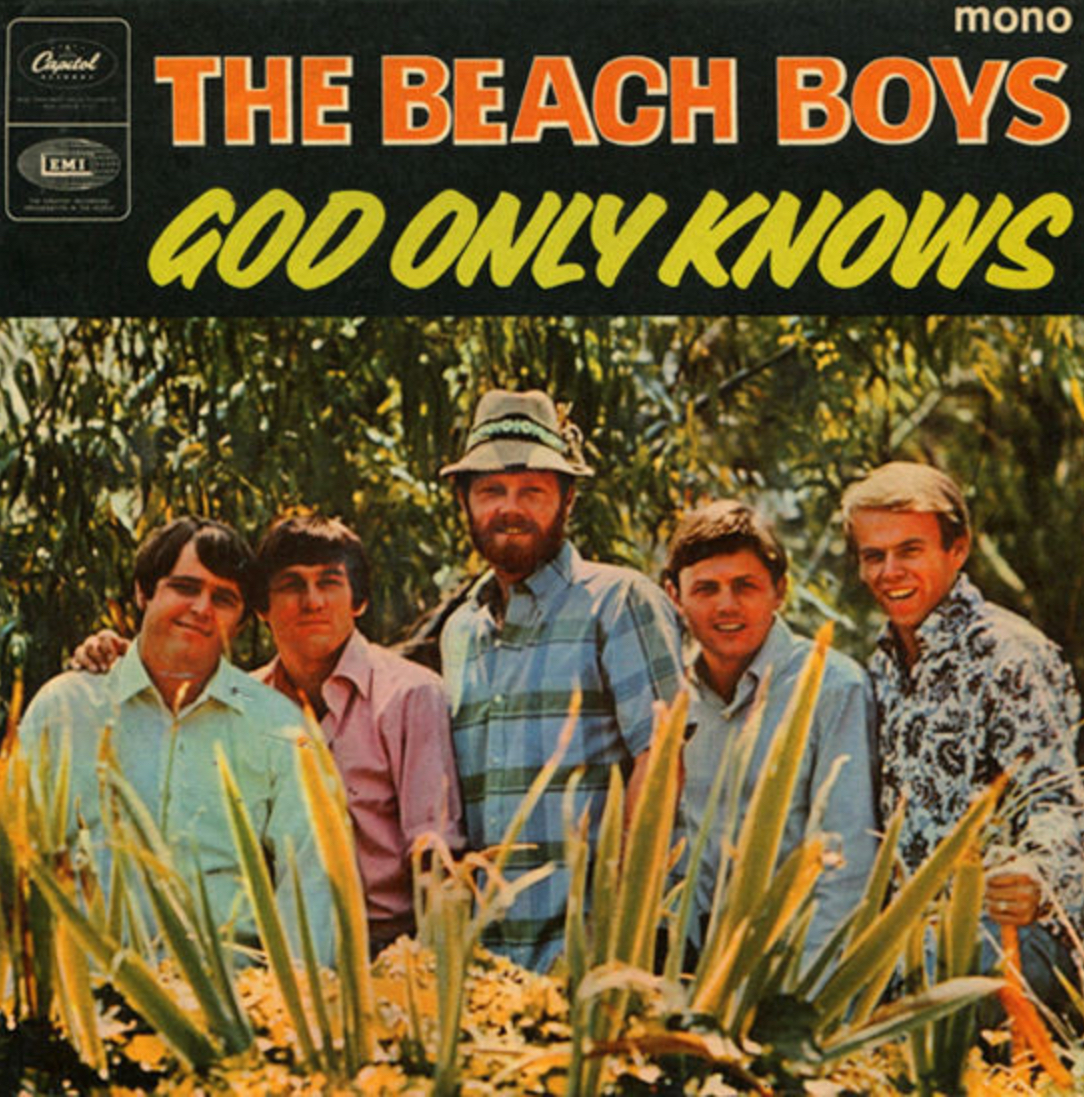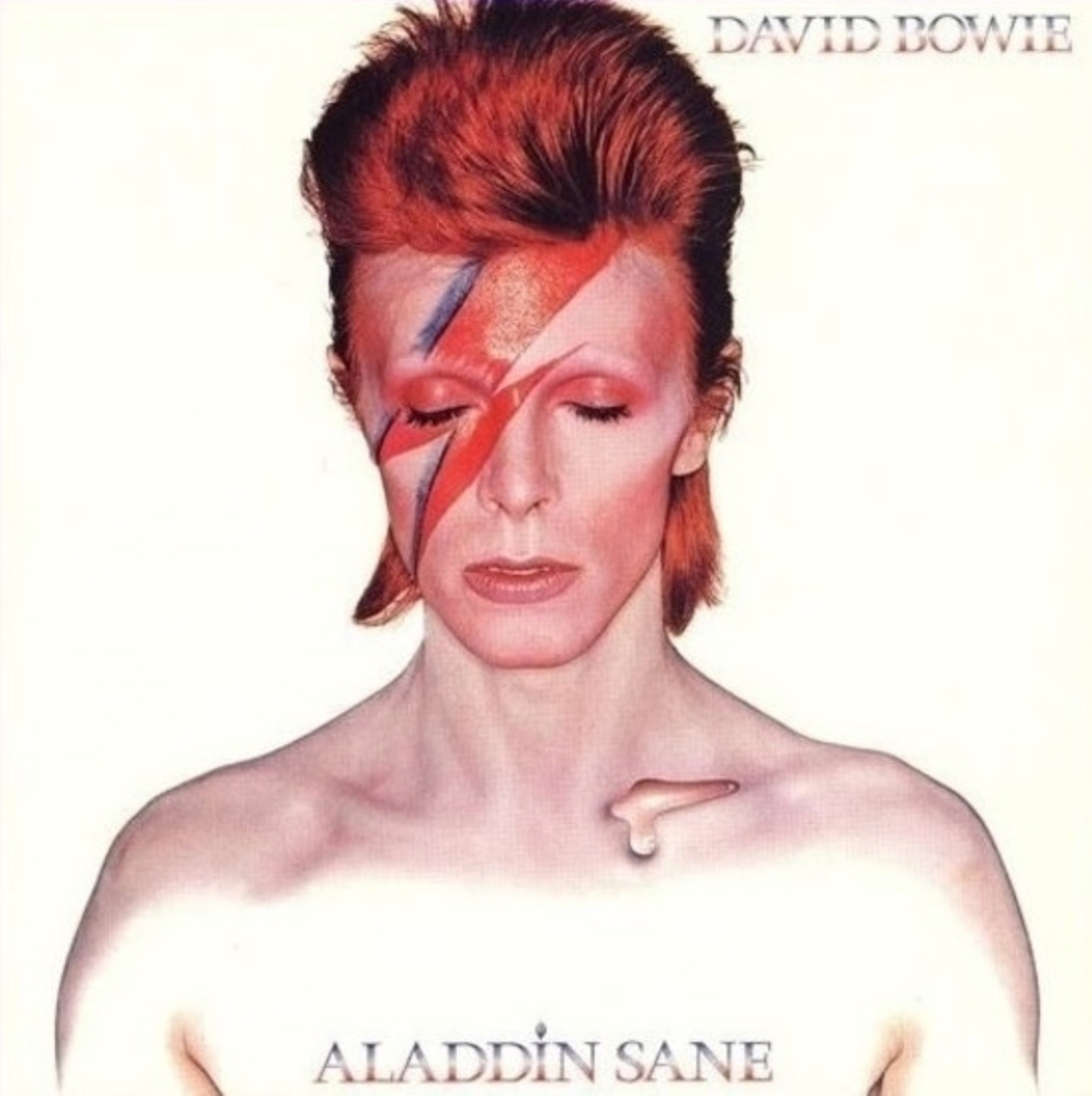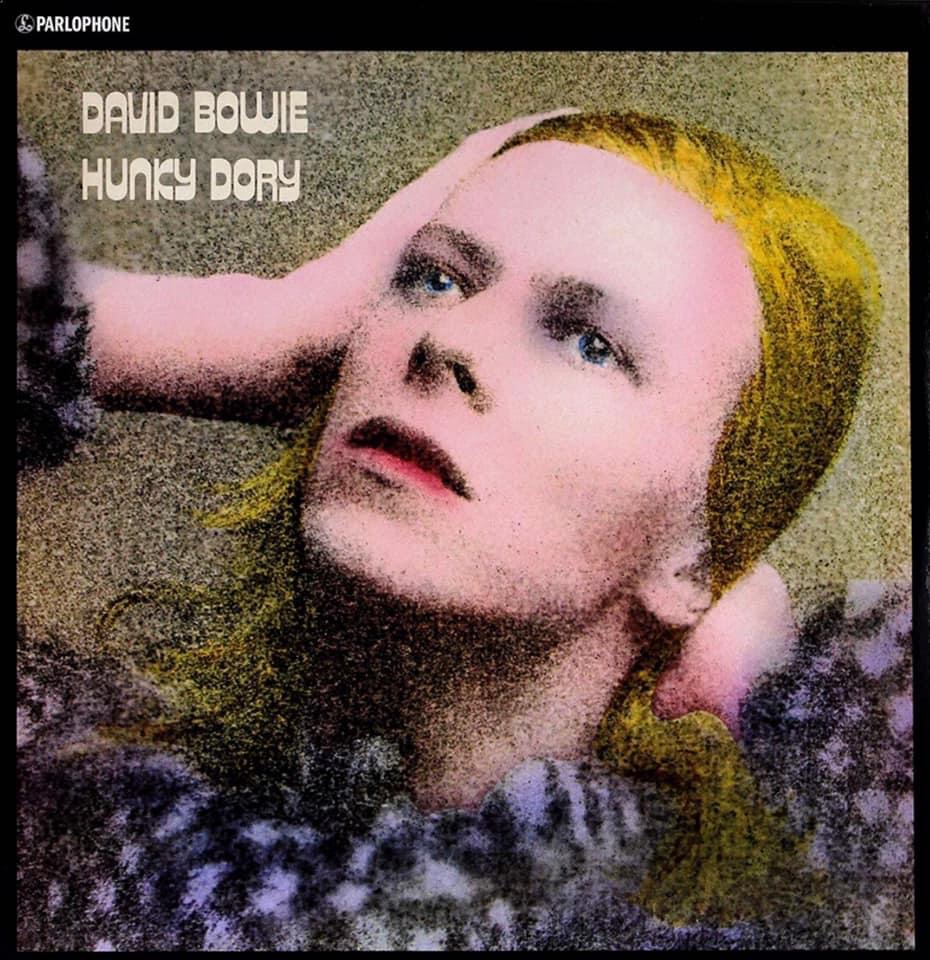The Beach Boys, “God Only Knows” – David Bowie v Claudine Longet
Probably the first Beach Boys song that I have a clear memory of hearing is “Surfer Girl”, which turned up on “Flashback Fever”, a 1975 K-tel compilation of 1960s songs that also included such classics as Jan & Dean’s “Surf City”, Ronettes’ “Be My Baby” and Bee Gees “(The Lights Went Out in) Massachusetts”, which is also possibly the first Gibb brothers track that made a real dent on my attentions. Over the nearly 50 years that have followed, I have heard a lot of Beach Boys music and saw them live a few times, though I never really got on board with the idea that they were anything special. They had a lot of really good singles, but it wasn’t an output that could stand comparison to the Beatles or Stones, and anyone that said otherwise was delusional.
After starting my Pazz and Jop project, I finally began listening to their albums, and my appreciation blossomed. This included “Pet Sounds”, which, while brilliant, also has a bit too much of a “Look at me, Ma, look at me!” vibe. Sure, it’s cool that you can do all this interesting stuff, but should you? It has “Wouldn’t It Be Nice?” and “God Only Knows”, which are two of my three favourite Beach Boys songs (“All Summer Long” is the other), “Caroline, No” and “Sloop John B” are also classics, and there really isn’t any dead air. It’s just very busy.
“God Only Knows” certainly isn’t free of Brian Wilson’s artistic fever dreams, but it’s the lyrics that have always pulled me in anyway. Though the opening line is “I may not always love you”, it’s framed in such a way – immediately followed by “But as long as there are stars above you / You never need to doubt it” – that you know instantly that it’s a lie, that the narrator is so besotted that there is no coming back from this. When he sings “God only knows what I’d be without you” it is both a declaration and an entreaty: please don’t let me find out. It is a song of undying love, and though he will carry on if she leaves, he will be a shell. It’s also a song that is deeply personal for me. I felt lost when I met my wife, not knowing what was coming next, and every time I hear this song – which was about 50 or 60 times today – I think of her and feel like she rescued me from an unknowable darkest timeline. So, of course, it’s not only my favourite Beach Boys song: it’s probably one of my 5 or 10 favourite songs period. Thus diving into cover versions was not without some risk, though I felt confident that my love of the original would preserve me in the face of whatever fuckery people got up to in the name of artistic expression.
Sometimes, finding two distinctive and listenable cover versions can be a struggle, but when it comes to “God Only Knows”, there are riches beyond the dreams of avarice. Not that all are created equally. Too many versions – Captain & Tennille (the Captain should have known better given his history with the Beach Boys), Neil Diamond, Michael Buble, Bryan Adams, Holly Cole, Joss Stone – slow it down and by doing so suck all the life out of the song. Yes, it’s a love song, but it’s celebratory, not the mourn-fest that these artists seem to think it is. Similarly, John Legend and Cynthia Erivo have lovely voices, of course, especially hers, but the orchestration is a complete slog. Other versions miss for different reasons: Andy Williams’ mannered and melodramatic singing ruins some lovely piano; Glen Campbell’s is pure cheese (though the opening appears to have been ripped off in 1978’s Superman movie tie-in “Can You Read My Mind”); Joey Hetherton is too bombastic; and Edith Whiskers is painful to listen to (though at least it’s sort of intentional). The backing track on Olivia Newton John’s version is annoying, and she seems to be trying to be sexy when that was definitely not the brand of pre-“Grease” Olivia. Brandi Carlile’s version is guitar forward, but it sounds like a guy in the corner at a party fiddling around with an instrument he’s still learning how to play. And, finally, Pentatonix are, well, Pentatonix, and you either like this overwrought a capella or you don’t, and I do not – it’s exhausting to listen to, all mannerisms and no subtlety, and no joy. Hard pass.
There are also a lot of whimsical versions, picking up on the baroque side of “Pet Sounds”: She & Him’s version is lighter than air, and just what you would expect from a manic pixie dream girl; Imaginary Future slow it down but still have some bounce, and it feels like the husband and wife that make up the band are singing to each other; and Lilia Tracie gives it a sort of tinkly bossa nova take. There are also some versions that don’t try to reinvent the song but just do a stellar job of showing their respect and love for it: Dale Earnhardt Jr. Jr., Avenged Sevenfold (which starts out quietly, and sort of low energy, like they aren’t really sure why they’re even playing this particular song, until the tempo picks up and they rock out the rest of the way), Jars of Clay (as wholesome as you would expect from a Christian band, but unexpectedly one of the more purely enjoyable listens), and Dr. Teeth and the Electric Mayhem, which is faithful, but with The Muppets, which has to be worth something.
Finally, before we get to our contenders, three unique versions that stand out. The Nylons bring a joy to a capella that Pentatonix lacks, and while the song works well in this style, it does go on much longer than it should considering how repetitive it is. Although I love Elvis Costello, classical music is not my thing, so I rarely revisit his work with the Brodsky Quartet, and while their version of this, as Elvis says, old California folk song is lovely, I just cannot get into it. Finally, we have Daniel Johnston, whose singing voice is a taste I have not yet acquired, but it’s still charmingly minimalist, which is a real challenge with a Brian Wilson composition.
The first of these covers that I listened to was from David Bowie, who quickly established himself as the front runner. Bowie never waters things down: to call it epic may not do it justice. It’s like the centrepiece of a gothic musical: the Phantom crying over his Christine, a tortured soul howling into the darkness. He stretches the song out, slows it down, accentuates the pain and fear at its heart. Swelling strings, heartbeat drums, a gloom-inflected vocal that rises to despair. But, like the Phantom, a dark lord obsessing over an unreachable desire, there is certainly an air of creepiness, which Bowie also excels at. There is something of the stalker to its presentation, like a guy watching someone through slightly parted (stage) curtains.
So, who is he watching? Well, how about Andy Williams’ ex, Claudine Longet. Full disclosure: I did not know she was a “singer”, and the quotes are entirely in reference to this recording. What I knew about Longet came down to two men: Williams and Spider Sabich, the boyfriend who she may have murdered but escaped justice thanks to some dreadful police work. And while this is really talking musically instead of singing, it has the kind of breathless sexiness that never fails to charm (well, men, at least). Maybe it’s the accent, like a druggy “Zou Bisou Bisou”. The baroque feel of the original is retained, though subtly: you certainly would not have heard this playing in the court of Louis XV while Rousseau stood by waiting for his monarch’s response. The only problem is that you never really believe what she’s saying: you’d be fine without him, Claudine, but he’d be a mess. But the whole thing somehow works, drifting on a cloud of Gallic grace and charm.
The Winner: David Bowie
This was never a fair battle. While Longet’s version is a lovely distraction, Bowie’s has gravitas, and is a more worthy descendant of the original. If both songs were encountered without foreknowledge, I think it would take you longer to recognize the Bowie track as a cover, and that matters to me. But both are honourable, neither tied to the past nor neglectful of it, original without being destructive.
The end of Brian Wilson’s time as a creative force seems to be close based on recent reports that he is suffering from dementia and being placed in a conservatorship. He has been part of that decision making process, so more music may yet come, but those days are certainly numbered. He has given the world a body of work that is breathtaking in both volume and quality, especially in view of the many interruptions to his career from challenges with his mental health. And his California folk songs will continue to brighten many a day in gloomier climes.




